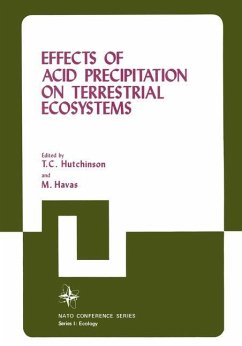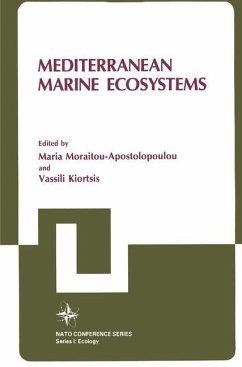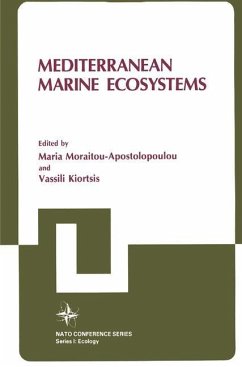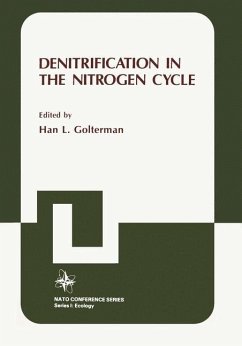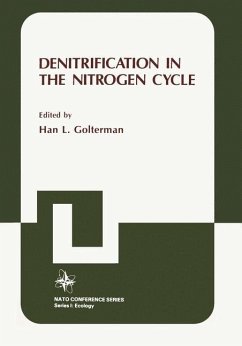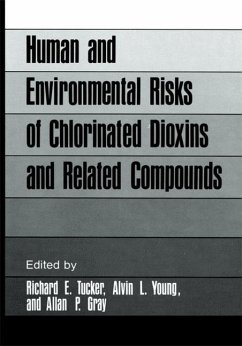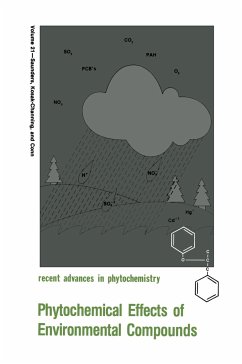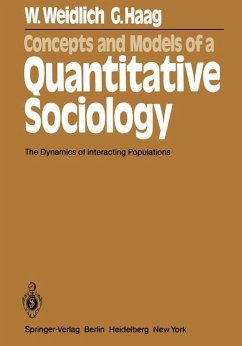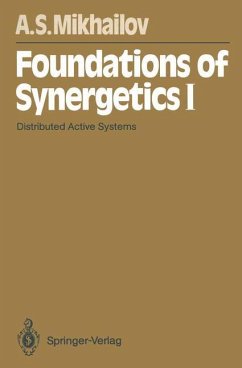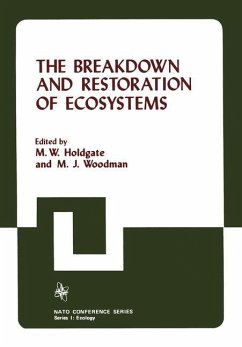
The Breakdown and Restoration of Ecosystems
Proceedings of the Conference on the Rehabilitation of Severely Damaged Land and Freshwater Ecosystems
Herausgegeben: Holdgate, Martin W.; Woodman, M. J.

PAYBACK Punkte
20 °P sammeln!
This volume contains the papers presented at a conference on "The rehabilitation of severely damaged land and freshwater eco systems in temperate zones", held at Reykjavik, Iceland, from 4th to 11th July, 1976. The meeting was held under the auspices of the Ecosciences Panel of the N.A.T.O. Science Committee, and the organising expenses and greater part of the expenses of the speakers and chairmen were provided by N.A.T.O. The scientific programme was planned by M. W. Holdgate and M. J. Woodman, in consultation with numerous colleagues, and especially with the Administrative Director of the Co...
This volume contains the papers presented at a conference on "The rehabilitation of severely damaged land and freshwater eco systems in temperate zones", held at Reykjavik, Iceland, from 4th to 11th July, 1976. The meeting was held under the auspices of the Ecosciences Panel of the N.A.T.O. Science Committee, and the organising expenses and greater part of the expenses of the speakers and chairmen were provided by N.A.T.O. The scientific programme was planned by M. W. Holdgate and M. J. Woodman, in consultation with numerous colleagues, and especially with the Administrative Director of the Conference in Iceland, Dr. Sturla Fridriksson. Iceland proved a particularly suitable location for such a Conference. Geologically, it is one of the youngest countries 1n the world, owing its origin to the up-welling of volcanic rock along the spreading zone of the mid-Atlantic ridge within the past 20 million years. Its structure, northern oceanic situation, recent glaciation and continuing volcanic activity make it distinct as a habitat and have given it a flora and fauna of especial interest. It is also a land of great natural beauty with its ice caps, waterfalls, volcanic landforms, geothermal features and dramatic coasts. In addition, its ecosystems have proved except ionally vulnerable to man's impact and it presents the kind of problem with which the Conference was concerned in an acute form.





